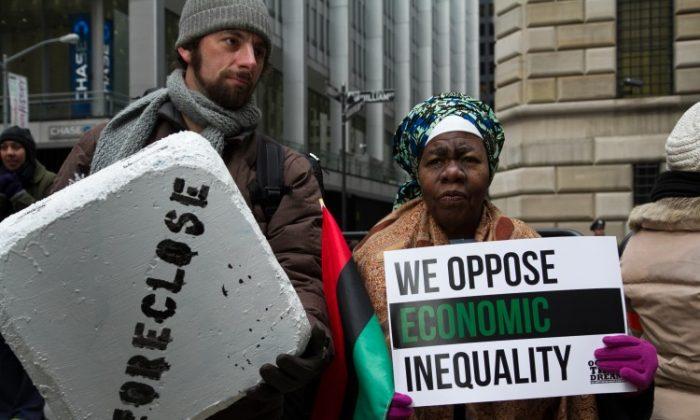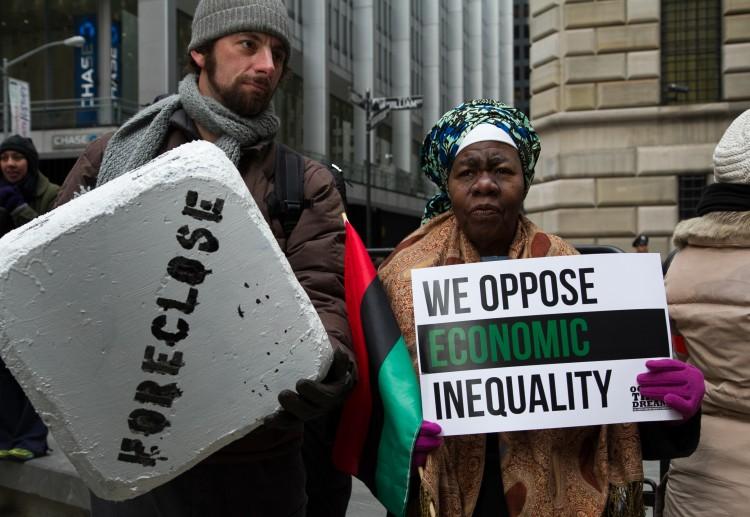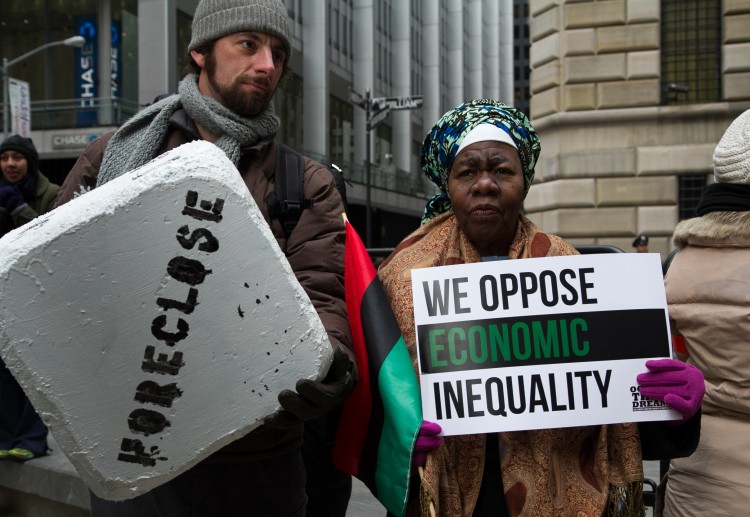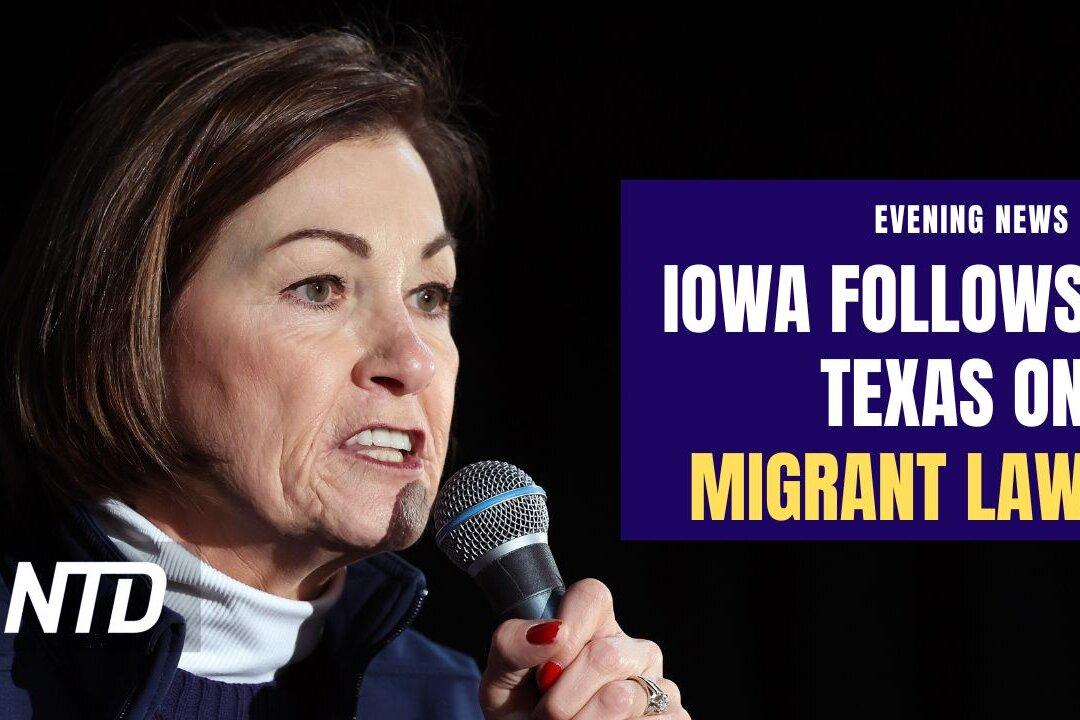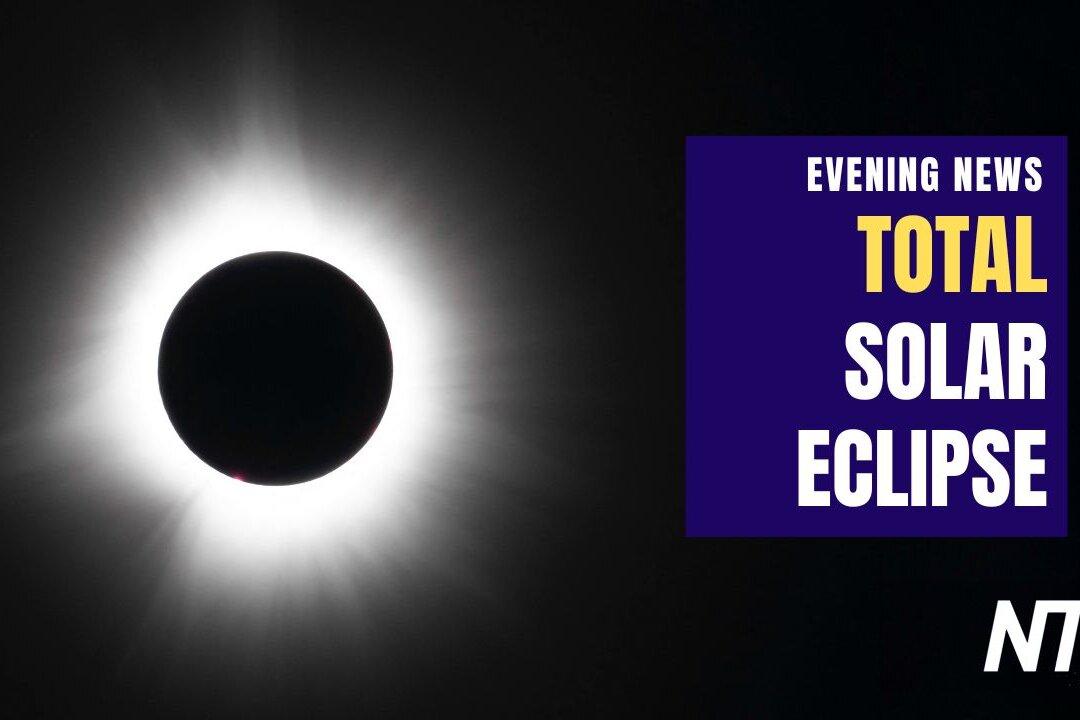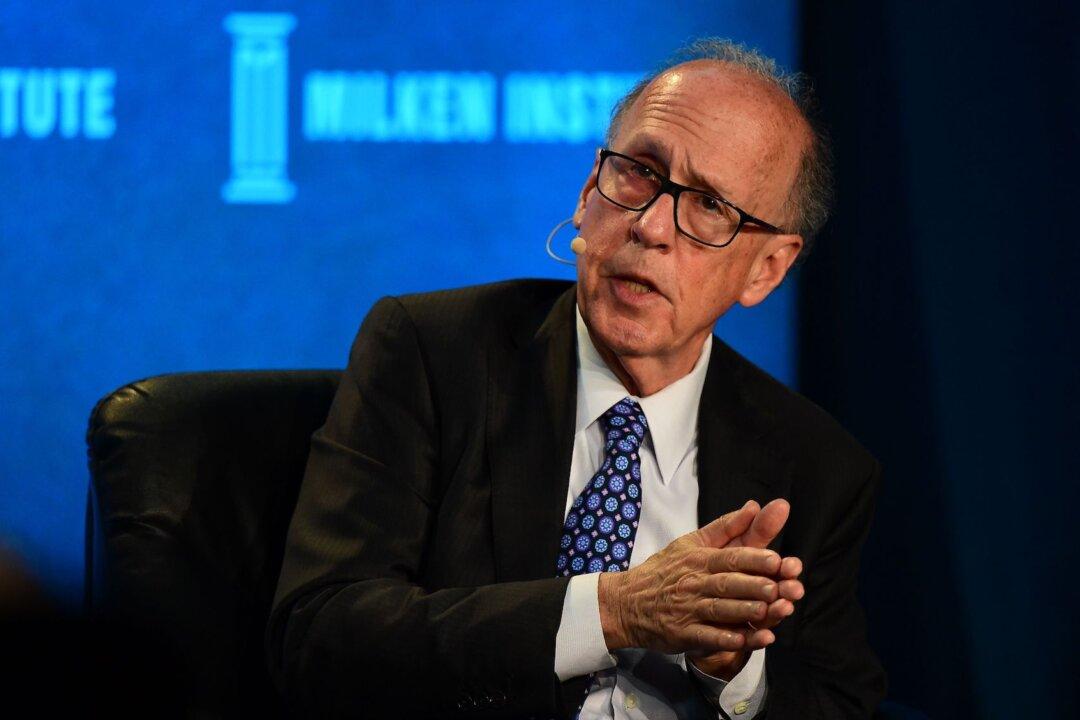NEW YORK—Occupy Wall Street protesters held a march and ceremony that “continues Martin Luther King Jr.’s quest for economic injustice through nonviolent action,” according to a press release issued by the protesters.
The march began at the African Burial Ground, stopped at the Federal Reserve, and ended at Madison Square Garden. About 70 people were present at each point on the march.
Wall Street was the original site for slave auctioning, and the wall that Wall Street is named for was built by enslaved Africans. To make a statement that represents the extreme inequity of Wall Street, the OWS began its march at the African Burial Ground to commemorate the Africans who were the first to suffer.
“Wall Street profiteers who once made a killing off the products of slave labor here in the United States” says Rebecca Manski of Occupy Wall Street, “today make their profits from outsourced sweatshop labor, prison labor, and slave-wage conditions in the U.S. All of this at the expense of U.S. workers and their right to make a fair, living wage.”
The march ended at Madison Square Garden where African-American and Latino Cablevision workers confronted Cablevision CEO and Knicks owner James Dolan, who the protesters classify as part of the 1 percent.
The Occupy Wall Street protesters compared their actions to Dr. Martin Luther King Jr.’s. King had declared the next phase of the civil rights movement to be a Poor People’s Campaign, which would focus on Americans in “economic bondage.”
“As Congress continues to serve the interests of wealthy donors on Wall Street, the American Dream grows further out of reach, attainable by only a few, well-connected, elite members of society. Occupy Wall Street is here to pick up where King left off. We are here to Reclaim the Dream,” according to the press release.
